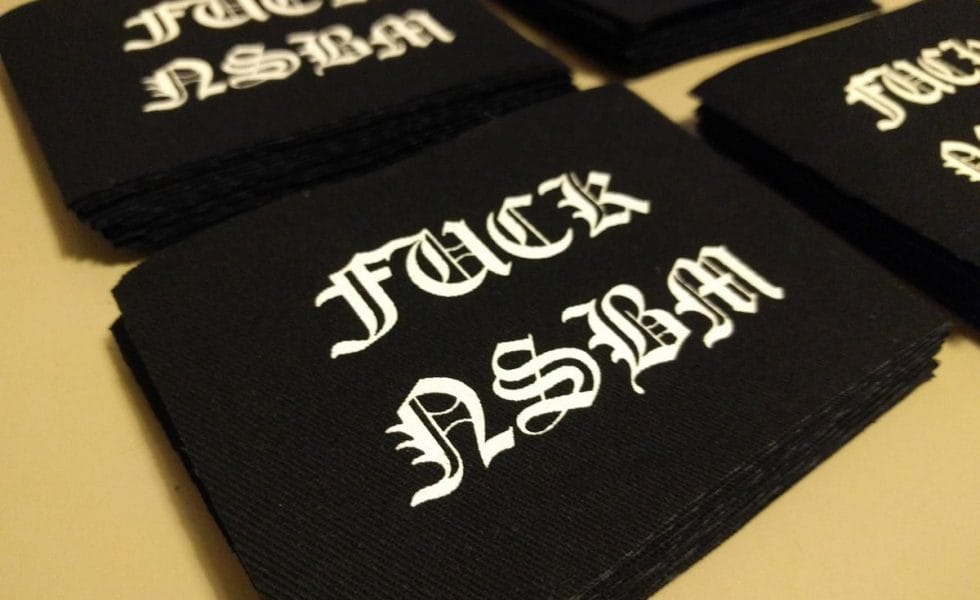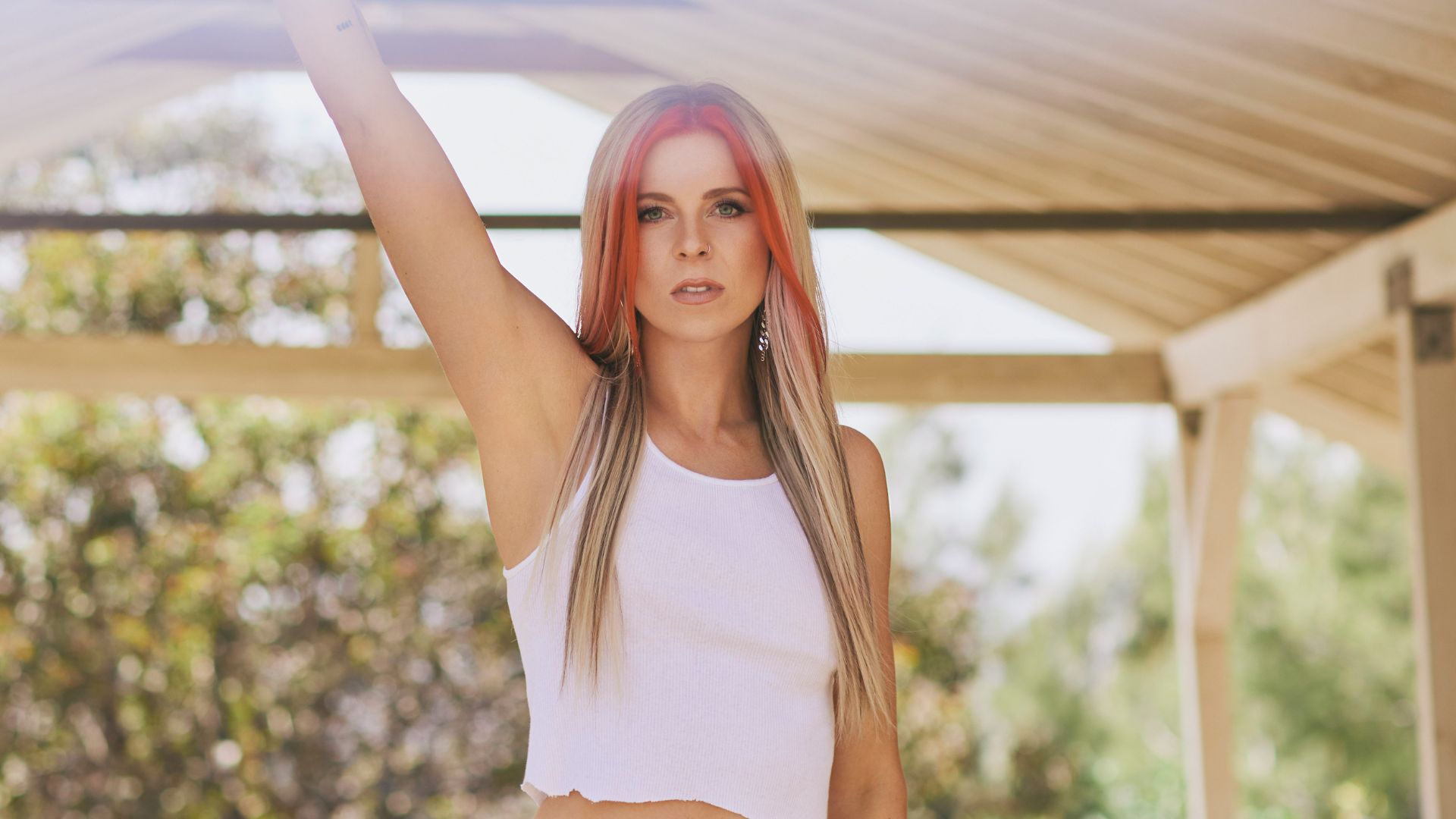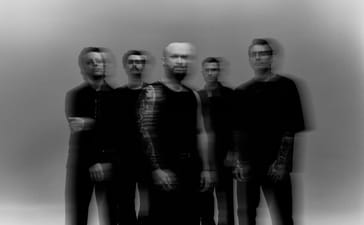How do you solve a problem like the rise of white supremacist ideology?
This is a big question and requires an even bigger answer. Considering that Australia’s still doing the shadow work on how one of our own could carry out one of the worst terrorist attacks in living memory in the name of the ideology, these are answers that we need to hash out.
The reality is that the Christchurch shooter didn’t live in a vacuum. To paraphrase Anti-Fascist researcher Tom Tanuki, there exists a fertile network of culture, or if you will, various stop-off points on the road to radicalisation for young, white Australians. One of those points is a swelling subsect within the Australian heavy music scene.
White supremacy bands are a thing in Australia. One particular band, now wrinkled, soggy relics from the ’90s, stalwarts of the National Socialist Black Metal (NSBM) scene, just dropped their latest acoustic EP. A Tasmanian start-up band is selling Nazi merch (and a knife) with their album bundle. Another local group posted swastikas to their Facebook page and Destroyer666 were so problematic, their Australian tour was cancelled.
Some of these bands will perform at the multiple annual white power music festivals that have taken place in Australia for more than a decade.
And it would seem that despite our best efforts to do nothing about the situation, it’s only getting worse. While it’s a fringe movement, of a subsection of a subculture no less, recent history has shown us that all it takes is one follower.emboldened in their views, to take things too far and human history is changed forever.
It’s highly doubtful there are White Power recording studios in Australia. We haven’t come across any White Supremacist touring agencies. Perhaps you use the same recording studio as one – and the same engineer. Indeed, some of those short-short wearing Nazis caught shouting into the Grampian void recently have stood next to you at a show. What this tells us is that NSBM bands can’t survive without the traditional music community and as such, its within our power to stop it.
To add some academic muscle to the discussion, Blunt Magazine spoke with Ash Barnes and Ben Hillier from the University of Tasmania who recently published their research ‘Wolf In Sheep’s Clothing: Extreme Right-Wing Ideologies in Australian Black Metal’ in the International Association for the Study of Popular Music Journal.
What made you focus on the rise of the far-right in the Australian heavy music scene?
Ben: My PhD is on Australian metal and a part of that PhD is looking at unique Australian sounds, but also what the Australian identity is. And pretty quickly, when you’re looking at Australian metal, you brush up against bands that have a very, very narrow view of what it means to be Australian. You run into bands like Spear of Longinus and Destroyer 666. These bands that use these symbols and they put these lyrics together, they know what they’re doing.
We originally wanted to look at fascism and anti-fascism in Australian metal and Australian punk. We found a lot of fascist Australian metal bands and not very many anti-fascist ones.
Ash: For my current research, I look at this thing called techniques of neutralisation, which is about how people, when they get called out for something, respond to dealing with responsibility and blame.
We were looking at our two separate interests and we started to realise the way that people respond to being told that they’re a Nazi band has very similar stuff. Like, “Oh no, that’s just our persona.” Or “that’s just a part of the act that we do.” Instead of engaging with what they’re actually doing, what they’re saying and how they use dog whistles to have people interested in their things.
Ben: We ended up pulling apart the way their rhetoric works and looking at the reasons why people defend these bands or mitigate their problematic nature, so that they can hold onto a piece of music that they enjoy.
What threat does this pose in the music community?
Ash: In America they have a thing called the Poverty Law Center, which has their map of extremist groups. And on there they have some bands that have problematic views, all the way to being deemed as a threat and terrorist group. There’s a really huge gradient when we’re talking about far-right and conservative bands, but it’s also across genres as well. It’s not just black metal doing this.
Ben: For me, it’s a matter of normalisation. You look at things like the New Zealand mosque shooting. A random Australian dude flew to New Zealand, killed 50 people, injured nearly as many. Those kinds of things become more common when this rhetoric is normalised and people getting away with it emboldens other people to step forward and go, “Yeah. Okay. I’ll be a part of this.”
Frankly, as far as I’m concerned, they’re a danger to our local community, the bands that are active like this, have influence and are people that operate in our community. To have our community be a safe place for everybody, it needs to be dealt with somehow.
“These bands that use these symbols and they put these lyrics together, they know what they’re doing.”
Something that you mentioned before is that you noticed an uptick since 2016…
Ben: A lot of the bands that do this stuff have been around for a while. I think part of it is the diffusion that the internet has caused. In the old days for a hate group you’d have a recruiter; someone that would funnel you through the different stages. Now that everything’s online and it’s atomised, they can wind you up and just let you go. No one recruited you and no one is your point of contact.
It’s kind of this nebulous community. Therefore when you go off and commit a hate crime, we didn’t tell you to do that. We may have written five albums talking about how cool that would be if you did that, but we didn’t make you do that.
Take Waldkampf. I think they bill themselves as naturalist black metal things. On the surface they’re a group of guys that go and do tough workouts in the forest to black metal. Slightly below the surface they’re a gang of Neo-Nazis. There’s black sun [symbols]. There’s swastikas. They’re not prominent by any means, but it seems like a lot of people are getting involved with them and getting involved to the level of, “It’s fine. It’s just guys working out to black metal in the forest, nothing to worry about, dude.”
Why should the general metal fan care about this? They just want to bang their head because they work hard. They just want to get home and unplug and not care.
Ash: It’s about awareness. And then having to listen to the lyrics then going, “Okay, well you can listen to that stuff if you want, but it’s because there’s a part of you deep down that believes in what they’re saying.” And you have to own that and settle with it and decide, is that the kind of person you want to be? Is that the kind of person and the people you want to have around you in the scene? And what is the purpose of you enjoying this music? If you want to experience aggression and have catharsis by listening to music that’s passionate and empowering for you, does it have to be Nazi stuff?
Can you enjoy the stylistic thrashing guitar and the double kick from literally any other band in that genre? It’s also about accountability and also realising that your feelings and how you want to engage with the music is a privilege. Just sitting here and being like, “I really like this band because, I know that the lyrics are problematic and what they’re saying could hurt some people, but I want to keep listening to it.” Well, good for you because you’re obviously not someone who’s listening to it and having your ancestors being told that they’re nothing. You start to see more bands like Dispossessed. They’re actively pushing back from that.
Ben: Well, I think when I talk to metal fans, the thing I tend to put to them is if you don’t regulate your scene, it will be regulated for you. I think that the way Ash just described it is absolutely vital, but I’ve talked to people at that and they go, “I don’t care. I like the lyrics.” I want my scene to be a place that is welcoming and inviting for everybody and Nazi bands don’t. That’s part and parcel of them being Nazi bands.
What’s the end of that thought? Who is going to regulate it if we don’t?
Ash: I’ve been interviewing people from across Australia about their experiences in live music venues, there’s been a few people that were talking about the history of some Victorian pubs and they used to have good punk scenes and all of a sudden, every Tuesday afternoon, a Neo-Nazi would turn up and then the bar staff didn’t do anything. And then suddenly every Wednesday, some Neo-Nazis would turn up. And just the sheer presence of that turned that pub into a known affiliated Nazi hangout. It took a long time and a lot of hard work from the people on the scene locally to push them out again.
Because of the shifting late capitalism, everything is really money-orientated. And as bars have been shutting down, others are struggling through COVID, they might have a chance to put a Nazi band or an apolitical band on because they need the revenue.
What can we do right this very second to actually help?
Ben: Stop supporting Nazi bands. Don’t go to their gigs, don’t buy their merch, don’t promote them. I think that’s the biggest thing you can do. And I’m not a huge fan of having to work within the systems of capitalism to deal with this problem. But there’s not a lot else you can do.
Ash: What’s really important is to recognise that this isn’t something that is new. It has always been there. I think as the rise of call out culture has happened, people have become more critical of people that they listened to. Before you would just listen to whatever you liked because of the beat. But now we go, “Actually those lyrics are problematic.”
There’s so much insecurity there and a lot of bad mental health and a whole bunch of stuff. Not saying it’s right or good. But if we’re going to have a scene like Australian music scene, we also need to provide a safety net.
Ben: …I also think, like at the end of A Bug’s Life, there are more of us than them.
In September, the Australian Security Intelligence Organization, the domestic spy agency, said far-right violent extremist groups made up 40% of its counterterrorism workload, up from 10% a few years ago.
Image: Blackened Death






